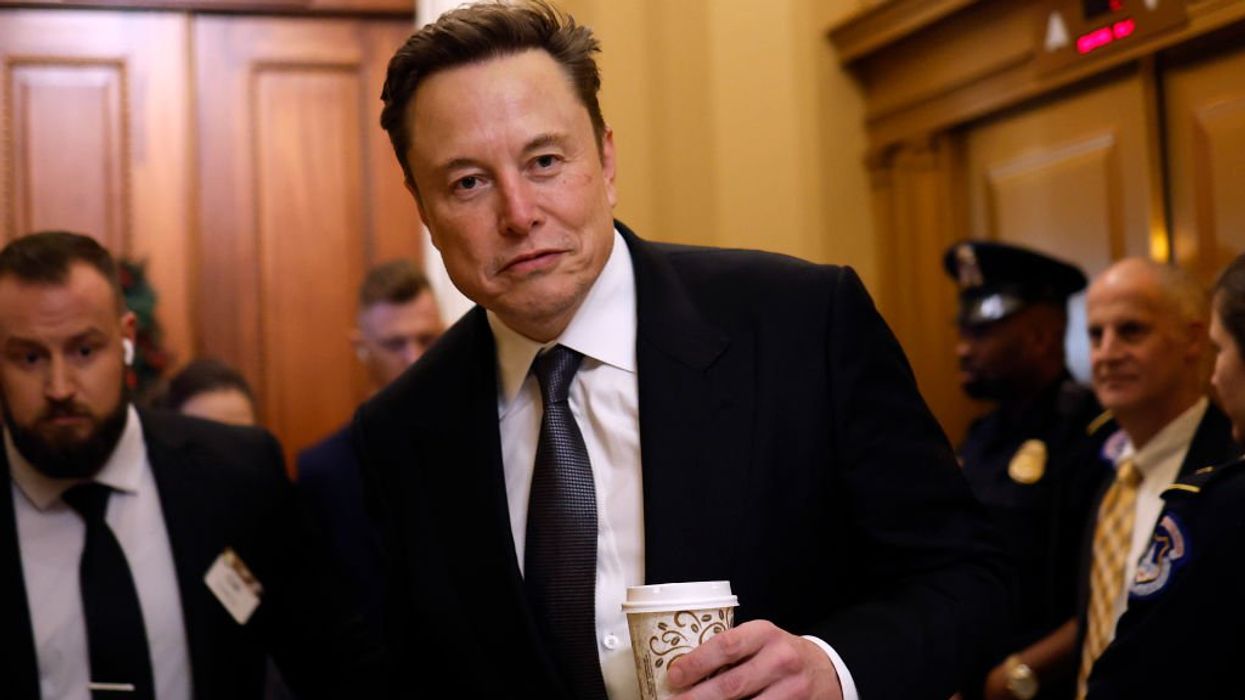Our ongoing series, “Just the Facts,” strives to approach news stories with both an open mind and skepticism, so we may present our readers with a broad spectrum of viewpoints through diligent research and critical thinking. As best we can, we look to remove personal bias from our reporting and seek a variety of perspectives in both our news gathering and selection of opinion pieces.
Does Elon Musk have conflicts of interest running DOGE?
Elon Musk's involvement with the Department of Government Efficiency (DOGE) has raised concerns about potential conflicts of interest. Critics argue that his leadership role in DOGE, which aims to cut federal spending, could intersect with his business interests, as his companies like Tesla and SpaceX have received billions in government contracts.
Additionally, some have pointed out that Musk's companies might benefit from decisions made by DOGE, such as regulatory changes or budget cuts, targeting agencies that have previously investigated his businesses. While Musk has stated he would recuse himself from situations involving conflicts of interest, skepticism remains about the extent of his influence.
Have any legal actions been taken against Musk in this regard?
There have been legal actions involving Elon Musk and his role in DOGE. A notable example is a class action lawsuit filed in February 2025. The lawsuit alleges that Musk and DOGE improperly accessed sensitive personal and financial data from federal databases without proper authorization or legal justification. This case has raised significant concerns about privacy and data security.
Details as to the above:
There have been several legal actions and controversies surrounding Elon Musk's role in DOGE. Here are some key details:
- Privacy and Data Security Lawsuits: Musk and DOGE have faced lawsuits alleging unauthorized access to sensitive federal data. These cases have raised significant concerns about privacy violations and breaches of the Federal Information Security Modernization Act.
- Constitutional Challenges: A coalition of 14 states has filed a lawsuit arguing that Musk's appointment and DOGE's actions violate the U.S. Constitution's Appointments Clause. The states claim that Musk's role has led to "chaos and confusion" in federal operations.
- Federal Advisory Committee Act (FACA) Violations: Multiple lawsuits allege that DOGE has failed to comply with transparency and disclosure requirements under FACA. These include accusations of secret meetings and lack of public access to records.
- Judicial Orders: Recently, a federal judge ordered Musk and DOGE to provide documents and answer questions about their authority and actions. This is part of ongoing efforts to clarify the scope of DOGE's influence and its compliance with federal laws.
Has the board of directors or stockholders of Tesla raised concerns about conflicts of interest that Musk might have?
Concerns have been raised by both Tesla's Board of Directors and stockholders regarding potential conflicts of interest involving Elon Musk. Here are some key points:
- Board Oversight: Critics, including Senator Elizabeth Warren, have expressed concerns that Tesla's Board of Directors has not adequately addressed Musk's potential conflicts of interest. For example, Musk has been accused of redirecting critical resources, such as AI-related GPUs, from Tesla to his private ventures like X Corp.
- Stockholder Concerns: Stockholders have voiced worries about Musk's divided attention and the impact on Tesla's performance. His involvement in multiple ventures, including his role in the Department of Government Efficiency (DOGE), has led to fears that Tesla is not receiving the focus it requires.
- Board Composition: Tesla's board has been criticized for having close ties to Musk, which could compromise its independence. Several board members have professional or personal connections to Musk, raising questions about their ability to exercise unbiased judgment.
These issues highlight the ongoing debate about corporate governance and the responsibilities of CEOs who juggle multiple high-profile roles.
How has Tesla stock done since President Trump was inaugurated and is it related to his role with DOGE?
Tesla shares saw a sharp decline, dropping from around $433 to as low as $215 by early March 2025. This represents a 47.6% decrease. While Musk's role in DOGE has drawn criticism and legal challenges—as the department has been associated with aggressive cost-cutting measures and federal workforce reductions, which has led to public backlash and protests—it is impossible to say to what extent, if any, this has contributed to the significant drop in the stock price of Tesla.
Has President Trump or Elon Musk commented on potential conflicts of interest for Musk?
Both President Trump and Elon Musk have addressed concerns about potential conflicts of interest.
President Trump has publicly defended Musk, stating that Musk has been treated unfairly and praising his contributions to Tesla and DOGE. Trump has also emphasized Musk's patriotism and downplayed concerns about ethics violations.
Elon Musk has claimed that he would recuse himself from any situations where conflicts of interest might arise. He has also highlighted DOGE's transparency, while downplaying his own potential conflicts, asserting that his actions align with the will of the voters.
These comments have sparked debates about the ethical implications of Musk's dual roles in government and private business.
The situation surrounding Elon Musk's potential conflicts of interest is layered and controversial. Critics argue that his dual roles in government and private business blur ethical lines.
Musk himself has stated that he would step back from decisions where conflicts might arise, but skepticism remains, especially given the scale of his influence and the intertwined nature of his ventures.
All data and information were obtained from Copilot, an AI-powered chatbot owned and operated by Microsoft Corporation.
David Nevins is co-publisher of The Fulcrum and co-founder and board chairman of the Bridge Alliance Education Fund.



















Trump & Hegseth gave Mark Kelly a huge 2028 gift